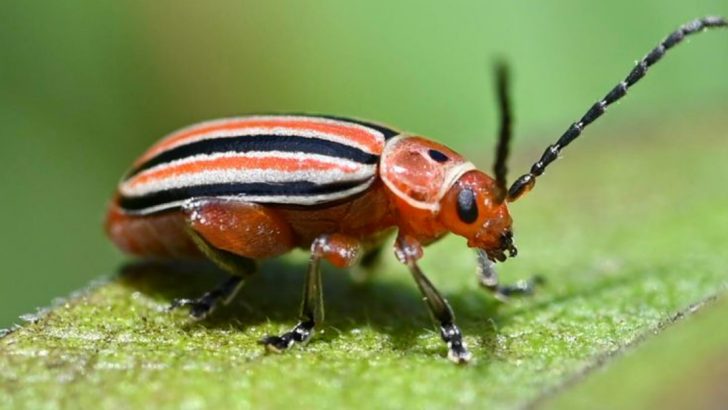Your garden isn’t just yours—it’s an all-you-can-eat buffet for the Mountain West’s hungriest troublemakers. Tiny jaws, endless appetites, and zero respect for your hard work—sound familiar? Before you know it, beetles, borers, and creepy-crawlies are throwing a feast at your expense. And chemical warfare isn’t the only way to fight back. Nature has its own arsenal. You just need to know which allies to call and which plants to plant. Think ladybugs, neem oil, clever traps, and the kind of garden savvy that keeps the bad guys guessing. Ready to shut down the all-you-can-eat buffet without poisoning your backyard? Let’s meet the 11 most common pests—and the natural fixes that send them packing.
Aphids
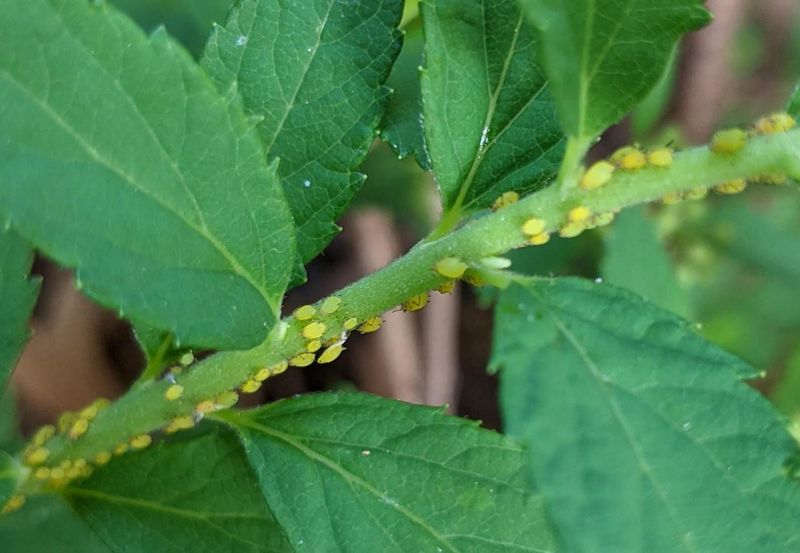
Aphids, with their tiny green bodies, cluster on new plant growth, sucking the life out of tender leaves. These little sap-sucking insects can rapidly reproduce, covering plants in a sticky substance called honeydew.
Ladybugs are natural predators of aphids. Introducing them into your garden can help control aphid populations effectively. Additionally, a strong blast of water from a hose can dislodge these pests from plants.
Aphids tend to thrive in areas with less airflow. Ensuring proper spacing between plants can reduce their numbers.
Slugs
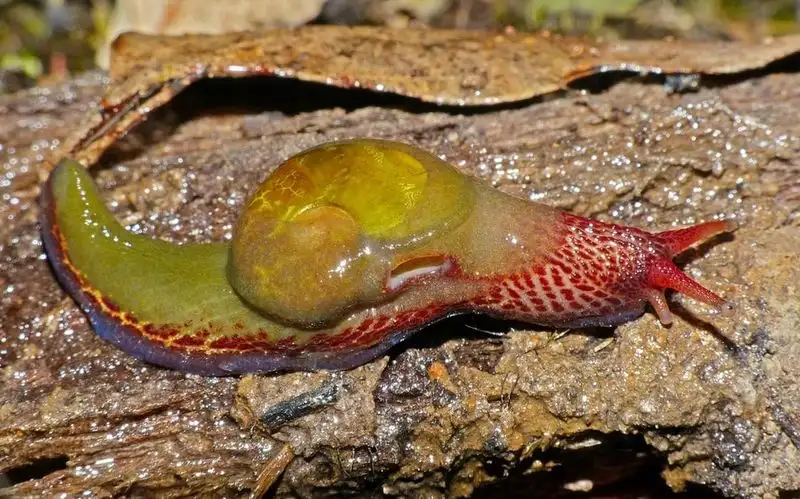
Slow-moving yet voracious, slugs leave behind a trail of destruction and slime. They feast on tender leaves, often under the cover of night, leaving ragged holes in their wake.
To deter slugs, consider using copper tape around garden beds. The metal reacts with slug slime, creating a mild electric shock.
Another natural method is placing beer traps in the garden. Slugs are attracted to the yeast and drown in the liquid. Removing garden debris and maintaining dry conditions also discourages them.
Spider Mites
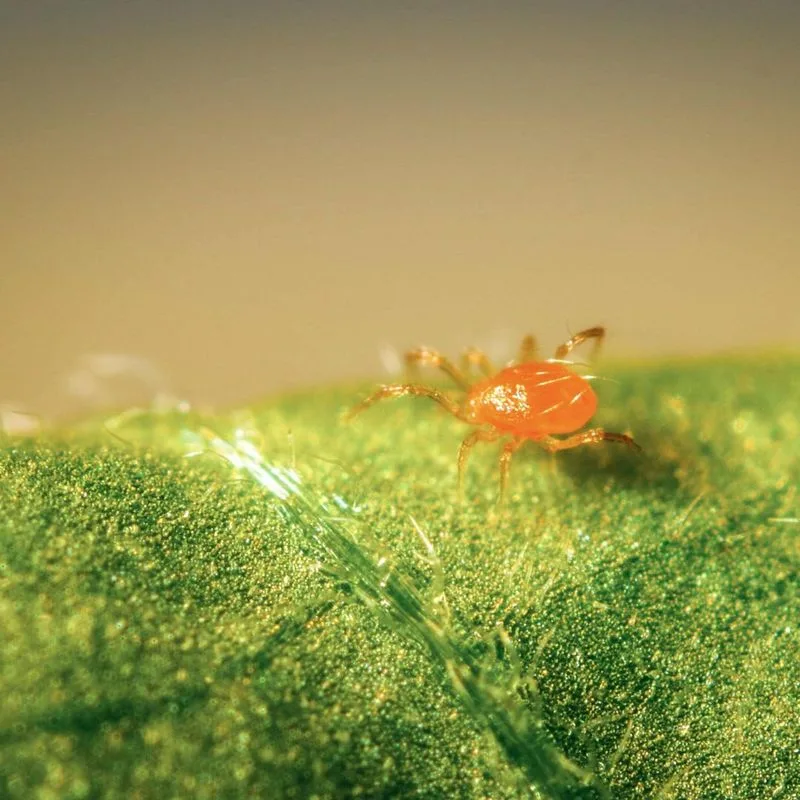
Spider mites may be small, but their impact is significant. These tiny pests spin delicate webs under leaves, where they feed and multiply.
To combat spider mites, introduce predatory mites, which naturally keep their numbers in check. Regularly spraying plants with water can also help, as spider mites prefer dry environments.
Maintaining a humid environment and using insecticidal soap are additional preventive measures. These pests thrive in dusty conditions; keeping plants clean can deter them.
Colorado Potato Beetle
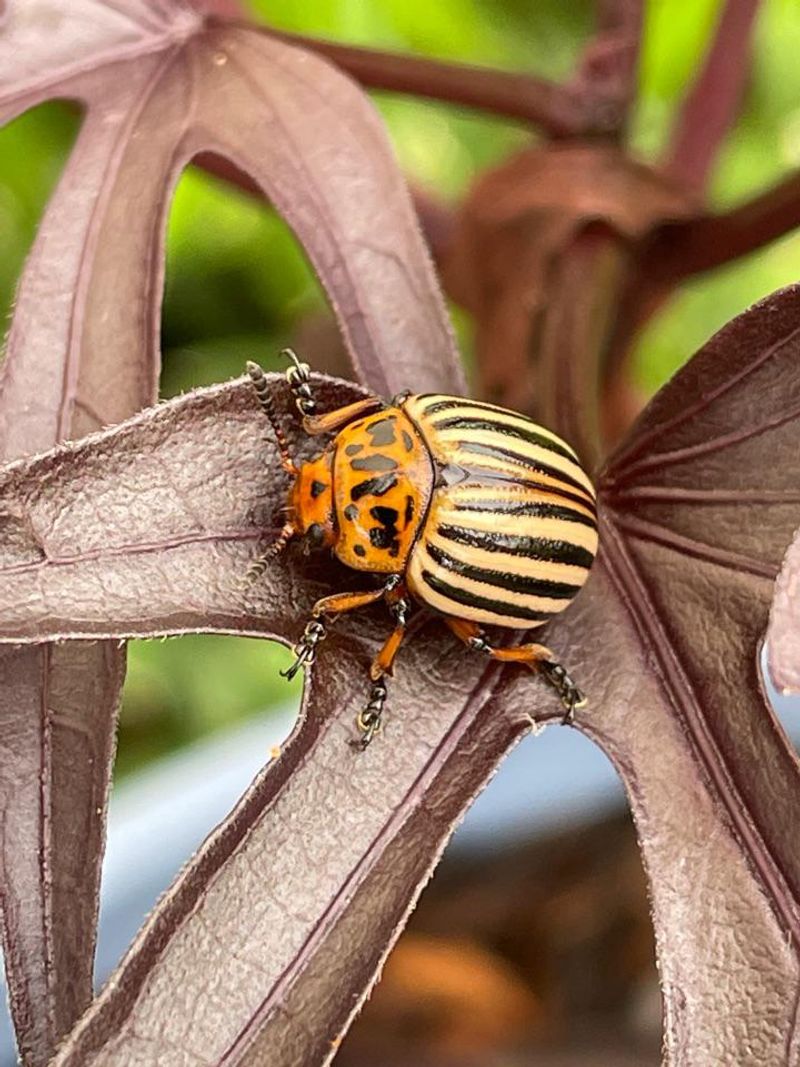
With bold stripes and a voracious appetite, the Colorado Potato Beetle is a gardener’s nemesis. This beetle targets potato plants, devouring leaves voraciously.
Handpicking these beetles is a straightforward method of control. Simply remove them and drop them into soapy water. Crop rotation can also prevent infestations by disrupting their life cycle.
Introducing beneficial insects like ladybugs can further reduce beetle populations. Maintaining plant health is key to resisting infestation.
Cutworms
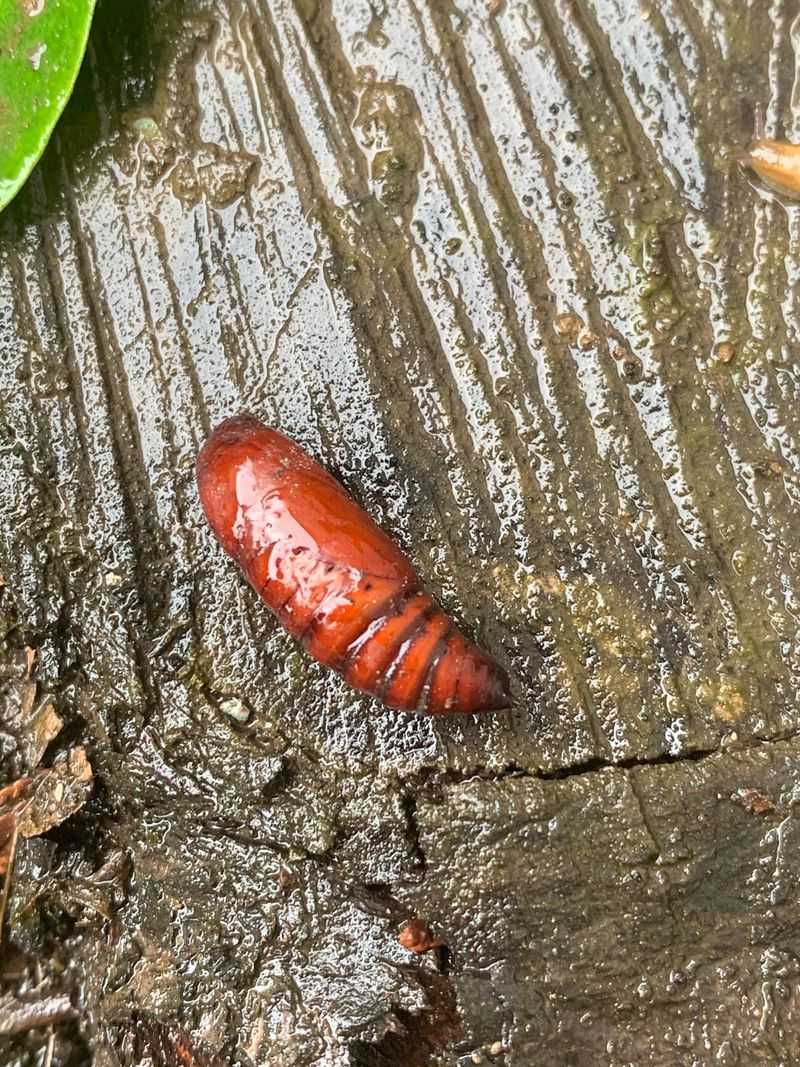
Cutworms are stealthy night feeders, known for cutting young plants at the base. Emerging in the evening, they can wipe out seedlings in a single night.
A simple collar made from cardboard or aluminum foil around plant stems can deter these pests. Tilling the soil before planting can expose and reduce overwintering larvae.
Encouraging natural predators, such as birds, to visit your garden can also help keep cutworm populations under control. Regular garden inspections are recommended.
Earwigs
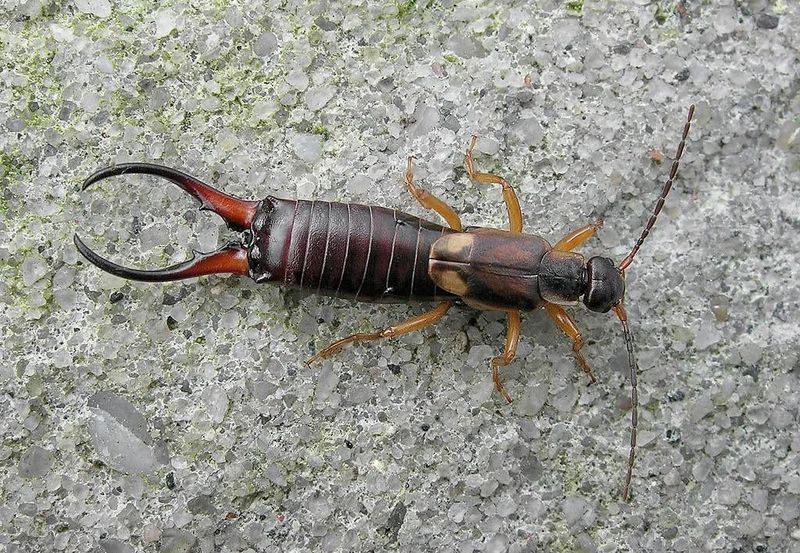
Earwigs, with their intimidating pincers, can be both friend and foe. While they feed on pests like aphids, they can also damage tender plant parts.
To manage earwigs, create traps using rolled-up newspaper or cardboard tubes. Earwigs will shelter inside, allowing you to easily dispose of them.
Maintaining a tidy garden by removing debris and mulching can reduce hiding spots. Encouraging predatory insects can also help in keeping their population in check.
Flea Beetles
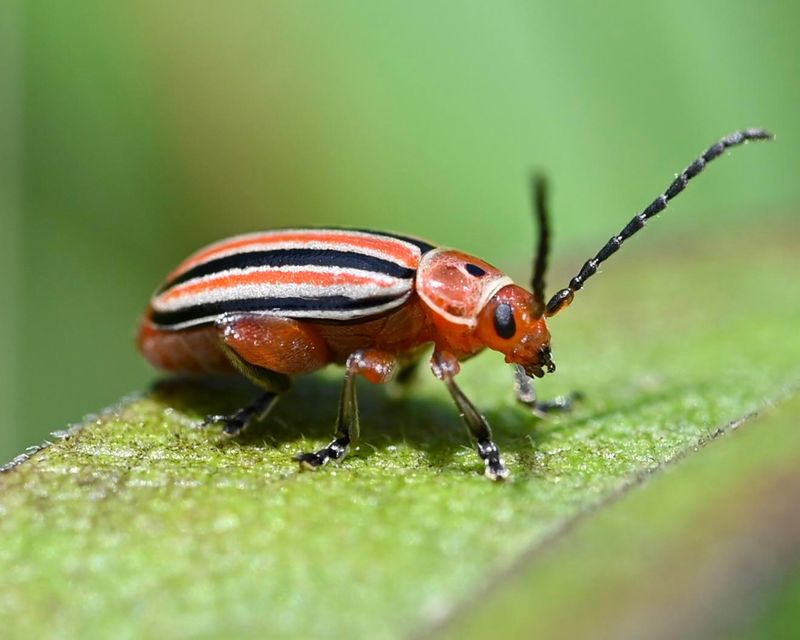
Flea beetles might be small, but their impact is mighty. They chew tiny holes in leaves, leaving plants with a shot-hole appearance.
Floating row covers can protect plants from flea beetles, especially during their active months. Planting trap crops like radishes can divert them away from main crops.
Keeping the garden weed-free and using diatomaceous earth around plant bases are additional methods to deter these insects. Healthy plants can better withstand flea beetle attacks.
Cabbage Loopers
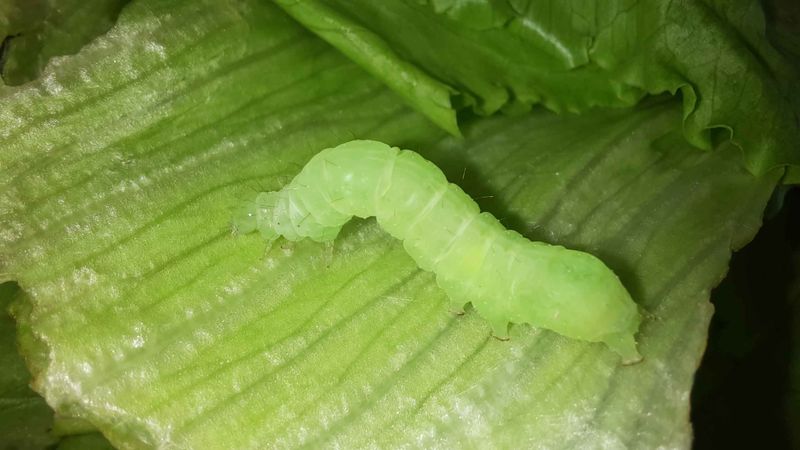
Cabbage loopers, identifiable by their green inchworm-like bodies, ravage cabbage leaves, creating ragged holes.
Handpicking loopers and dropping them into soapy water can control small populations. Introducing natural predators like parasitic wasps helps keep their numbers down.
Floating row covers can prevent adult moths from laying eggs on plants. Regularly checking plants for eggs and caterpillars can mitigate damage. Rotate crops to prevent re-infestation.
Whiteflies
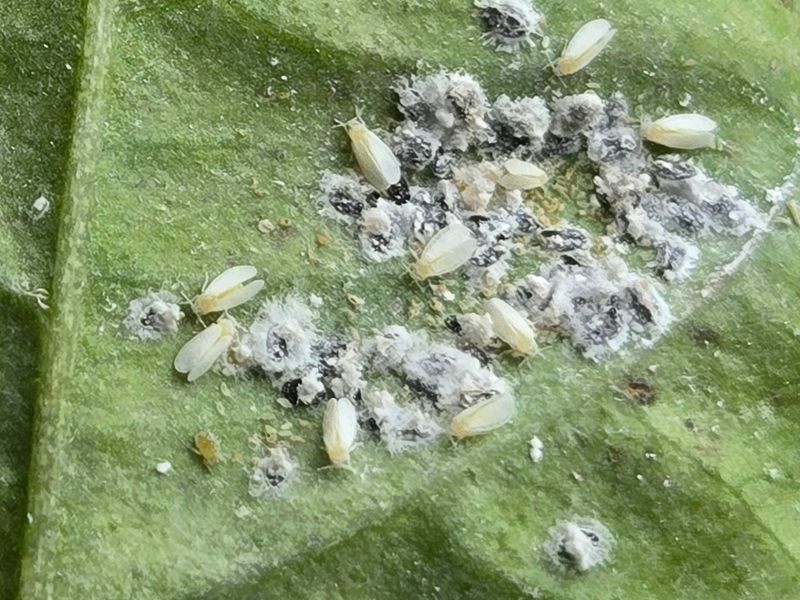
Whiteflies, resembling tiny moths, gather on the undersides of leaves, sucking out plant juices. Their presence can lead to yellowing leaves and stunted growth.
Introducing beneficial insects like ladybugs and lacewings can help control whitefly populations. Yellow sticky traps are effective in capturing these flying pests.
Maintaining healthy plants with adequate spacing and ventilation reduces whitefly infestations. Regular inspection and removal of infested leaves are crucial strategies.
Japanese Beetles
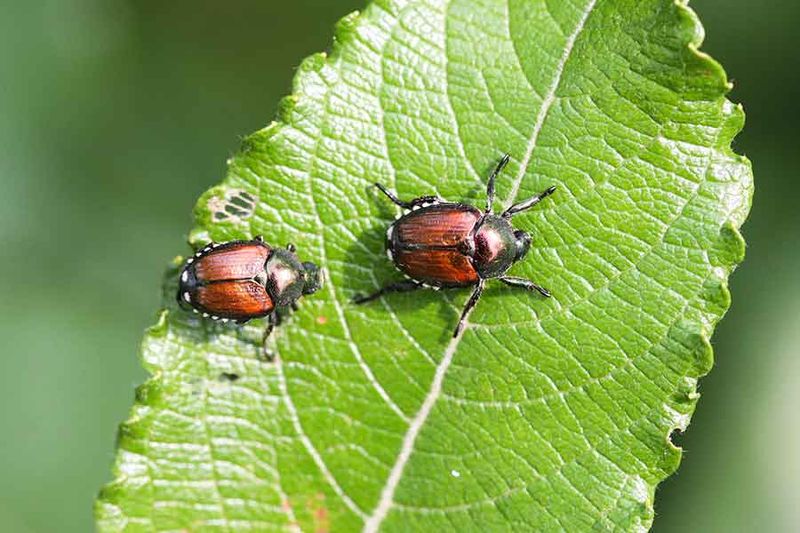
Japanese beetles, with their metallic green and copper bodies, are a sight to behold, but their appetite is destructive. They skeletonize leaves, leaving only veins.
Handpicking beetles early in the morning into soapy water is effective for small populations. Neem oil spray can deter feeding.
Introducing nematodes into the soil can naturally reduce grub populations. Encouraging birds in the garden also helps manage beetle numbers. Healthy, diverse plantings resist damage.
Grasshoppers
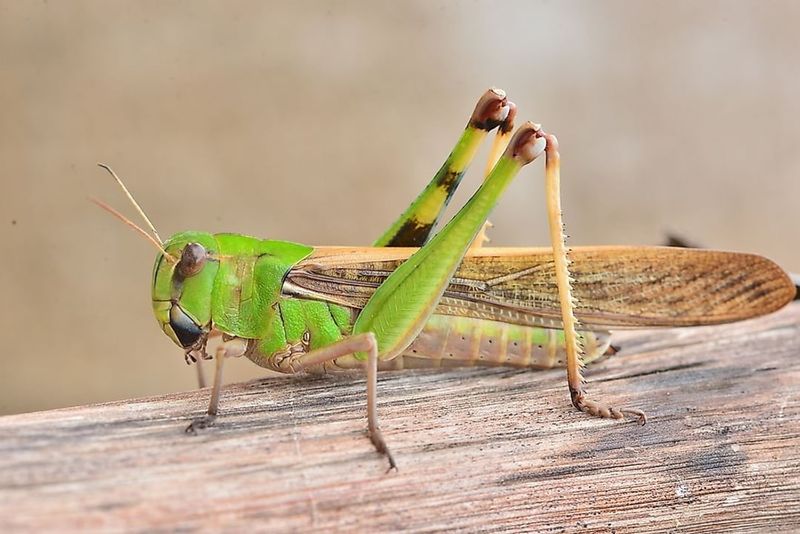
Grasshoppers, with their powerful hind legs, can decimate a garden if left unchecked. Their insatiable appetite spares few plants.
Using floating row covers can physically block grasshoppers from reaching plants. Applying garlic sprays on foliage can deter feeding.
Introducing natural predators, like birds and beneficial insects, can help control grasshopper populations. Keeping grassy areas mowed reduces breeding grounds. Regular monitoring aids in early detection.

